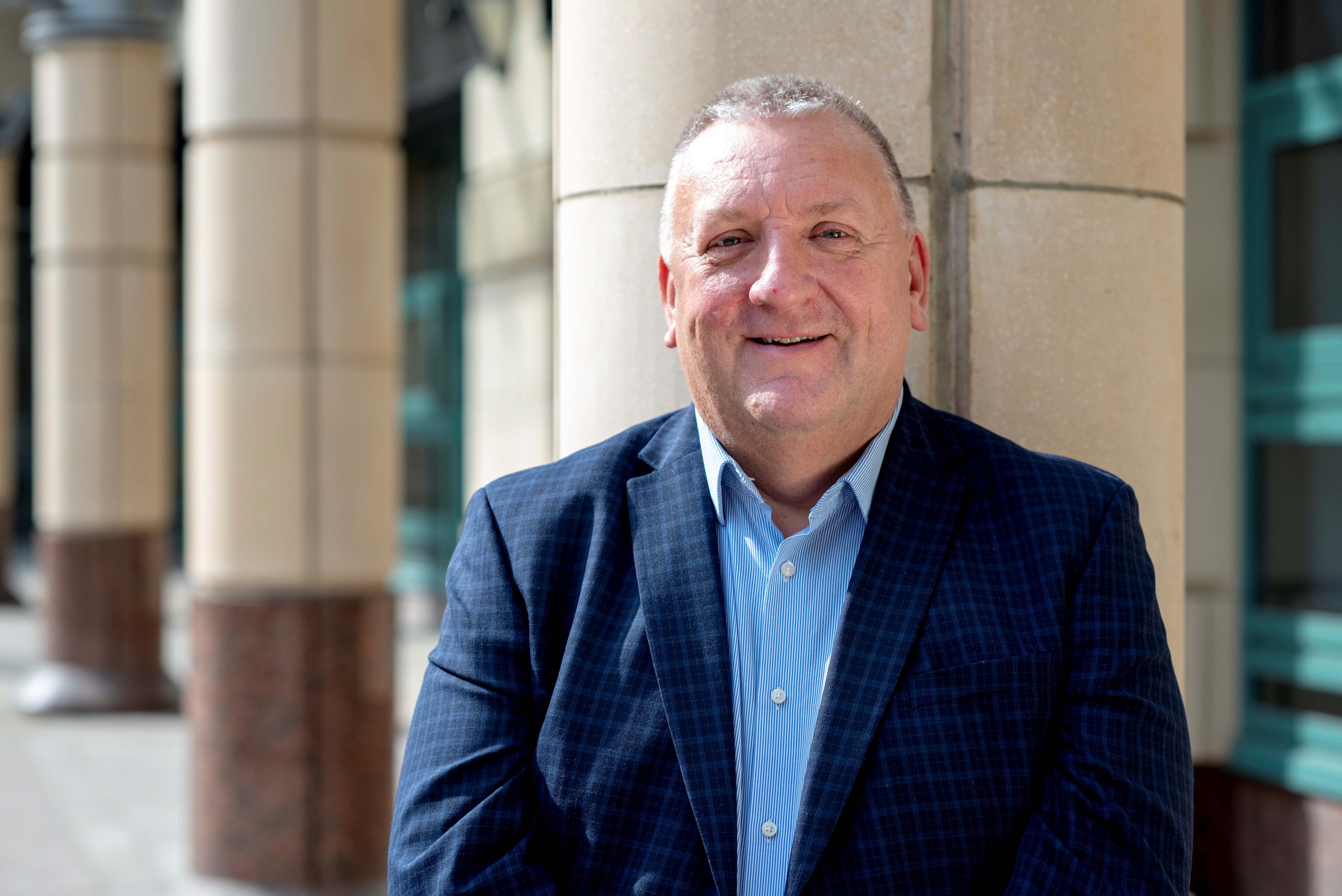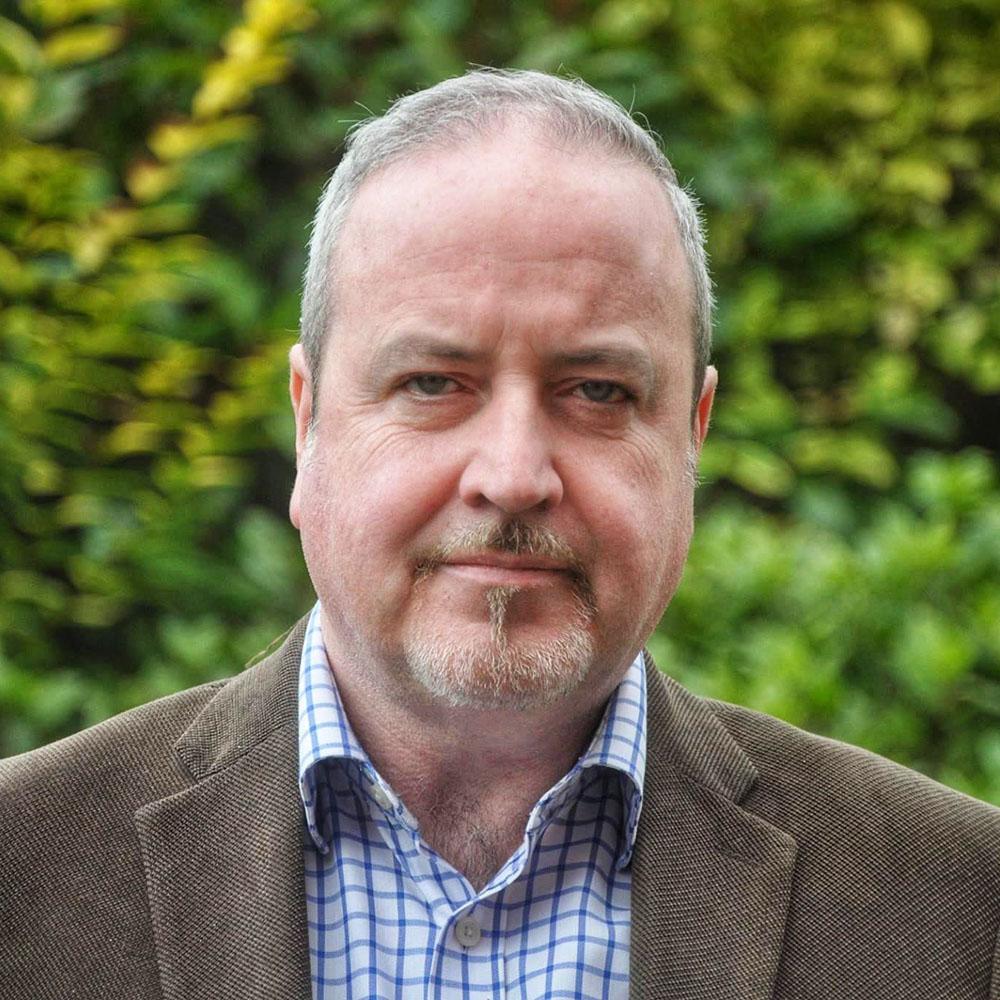Financial Focus: Paul Denton on the enduring relevance of building societies

Paul Denton – CEO of the Scottish Building Society
If there’s a phrase that neatly encapsulates the Scottish Building Society’s modus operandi it could well be “ambition underpinned by tradition”.
The world’s oldest remaining building society, founded in Edinburgh in 1848 as the Edinburgh Friendly Property Investment Company, takes a special pride in having always operated as a mutual society and, says its CEO Paul Denton, has “never deviated from our original purpose of helping people save money and others to buy homes”.
Denton, who was appointed in 2019 has good reason to be encouraged by the society’s steady success. SBS announced its annual results last month which showed that its total assets of £866.5 million have more than doubled since 2020, which is the strongest organic growth of any building society in the UK.
It made a pre-tax profit of £2.8m with mortgage balances of £577.2m and retail savings balances of £588.3m. Profits did fall, however down £1.2m from the previous £4m but this is not a unique situation in the sector and is likely to continue.
In January this year, credit ratings agency Fitch said it expected UK building societies’ profitability to fall from recent peaks toward their 10-year average in 2025, following expected rate cuts, but that this would not pressure societies’ ratings and that while profitability to moderate profitability is reducing from peak levels, these will continue to remain healthy.
That dip in profits across the board, says Denton, reflects two things. “One is the shape of the base rate movement. In 2022 and the early part of 2023 as interest rates were rising, typically banks and building societies’ profits were rising with interest rates.
“Equally, the reverse applies so in a climate in which we expect interest rates to decrease, that will be shape of the profit curve. That’s also accentuated by the fact that many building societies and banks – and building societies in particular – are investing heavily in their digital channels now to remain relevant, which is true in our case.”
In February this year the society partnered with data and communication platform Legado to implement new member communication technology with the aim of a more user-friendly digital experience and reduced costs associated with printing and posting to achieve paperless processes that will further SBS’s net-zero targets.
“This offers the opportunity for customers to receive all their documents such as terms and conditions, information about AGMs and changes in interest rates via a portal,” explains Denton.
“There are a host of mandatory mailings that are now required in our sector and customers are increasingly saying they are that they are happy to receive these online rather than through the post.”
However, while noting that the financial services world is ineluctably moving in the direction of digitalisation, he emphasises: “We still ensure that our service proposition remains highly personal, so our commitment to branches and to answering the telephones with mortgage advisors and personal underwriters continues. This is all about offering a choice.”
Both Denton and SBS have enjoyed recent recognition. In June last year he was elected president of The Chartered Banker Institute, the first time a building society representative has held the post at the global industry body, which is headquartered in Scotland.
The appointment reflects his more than 30 years’ experience in financial services which included being head of trading for retail banking at RBS/NatWest and managing director, operations, of Co-op Funeralcare.
In 2024 SBS was also named Building Society of the Year for the fifth consecutive year at the Scottish Mortgage Awards. “Both of these awards were really in recognition of the collaborative approach of the team as a whole,” he says. “And yes, both were proud moments but also something I take with a great sense of responsibility.”
If there is a recurring theme for Denton in today’s uncertain world it is “turbulence” – a situation that has certainly not been eased by recent announcements in the US, which have raised genuine alarm among many who are concerned about their savings and investments.
He is heartened though that the mutual model is one that has represented long-term stability and reliability – and will continue to do so. Shortly after its election last year, he points out that the UK government stated it would like to see the mutual sector double over the next five years.
“I think we provide evidence that that mutuality remains a very viable business model: during the past five years we’ve been able to double the size of our business. And we’ve done that organically – not by taking over other mortgage books but by showing we’ve a strong underlying business model. Our customers appreciate that as there are no shareholders, with the rewards going back to the individual society members.
“We are committed to doing this by offering a personal level of service that allows people to come and speak to us about their savings accounts or mortgages advice in our relationship centres or over the phone.”
The doubling in growth at SBS mirrors the five years since Denton became CEO with “a commitment to simple solutions, customer service and colleague engagement”.
On arrival, he says, he established a strong leadership team. “I was very fortunate that in Scotland there are some exceptional financial service professionals, so I recruited a capable, customer focused team, and decided to go back to basics.
“As the world’s oldest remaining building society we were set up for savings and mortgages, but like many financial services firms had allowed our portfolio to broaden into insurance, investments and funeral plans – so we decided to focus on those two things, but to do them very, very well.”
Although the society’s head office remains at Dalry Road, its Edinburgh relationship centre has moved to a new location at Frederick Street and, says Denton, SBS has invested majorly over the past four years, refurbishing all its branches and opening a new £500,000 branch in Aberdeen.
As high street bank branches continue to close, these represent physical points of contact that will be welcome in today’s singular circumstances. “I challenge anyone who tells you they could have predicted some of the events we’ve seen over the past five years,” says Denton.
“And undoubtedly there will continue to be turbulence but the best way you can prepare for that is to expect change – and be prepared to be flexible and understanding to help your customers through that.
“We know our business model will stand true and stand honest throughout that change and with the capability of the colleagues that I have – and the belief that we have in our business model – I’ve every confidence that whatever happens over the next 12 months we’ll continue to grow and be successful.”








